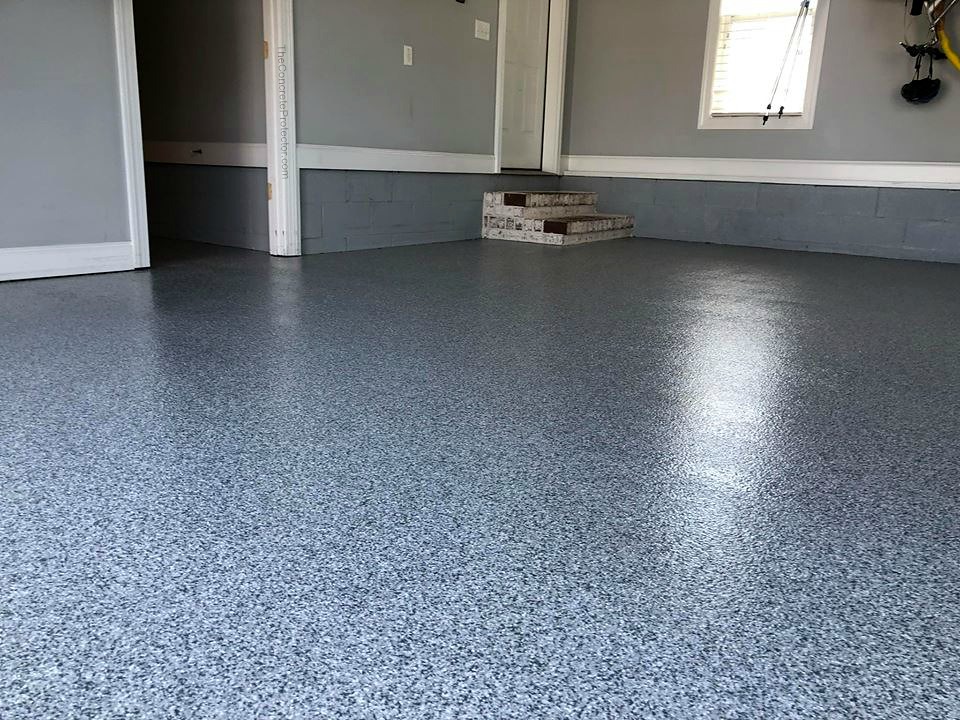Revitalizing Your Garage: The Ultimate Guide to Garage Floor Coatings
Your garage floor endures a lot - from oil spills and tire marks to heavy equipment and daily foot traffic. A high-quality garage floor coating can transform this often-overlooked space, providing durability, easy maintenance, and an attractive finish. This comprehensive guide will explore the world of garage floor coatings, focusing on popular options like epoxy and polyurethane, to help you make an informed decision for your home improvement project.

-
Enhanced aesthetics with various color and finish options
-
Easier cleaning and maintenance of the garage floor
-
Increased longevity of the concrete substrate
The most common types of garage floor coatings are epoxy and polyurethane, each offering unique benefits and characteristics suited for different needs and preferences.
Why choose epoxy for your garage floor?
Epoxy garage floor coatings have gained popularity due to their exceptional durability and versatility. Here’s why epoxy might be the right choice for your garage:
-
Superior adhesion: Epoxy forms a strong bond with the concrete substrate, ensuring long-lasting performance.
-
Chemical resistance: It can withstand exposure to various automotive fluids, chemicals, and solvents.
-
High compressive strength: Epoxy coatings can handle heavy loads without cracking or chipping.
-
Customizable appearance: Available in a wide range of colors and finishes, including metallic and flake options.
-
Cost-effective: Epoxy coatings offer excellent value for money, considering their durability and performance.
However, epoxy coatings may yellow over time when exposed to UV light and can be slippery when wet, which are factors to consider when making your decision.
What are the benefits of polyurethane coatings?
Polyurethane coatings offer several advantages that make them an attractive option for garage floors:
-
UV resistance: Unlike epoxy, polyurethane coatings maintain their color and clarity even with prolonged sun exposure.
-
Flexibility: These coatings can flex with temperature changes, reducing the risk of cracking.
-
Abrasion resistance: Polyurethane provides excellent protection against scratches and wear.
-
Quick curing: Many polyurethane coatings cure faster than epoxy, allowing for quicker project completion.
-
Low odor: Some formulations have minimal odor during application, making them suitable for enclosed spaces.
While polyurethane coatings excel in many areas, they typically have lower chemical resistance compared to epoxy and may require more frequent reapplication in high-traffic areas.
How to choose the right coating for your garage floor?
Selecting the ideal garage floor coating depends on various factors:
-
Usage: Consider the primary purpose of your garage and the level of traffic it experiences.
-
Climate: Factor in temperature fluctuations and exposure to sunlight in your area.
-
Aesthetic preferences: Determine the desired look and finish for your garage floor.
-
Budget: Compare the costs of different coating options, including installation and maintenance.
-
DIY vs. professional installation: Assess your skill level and the complexity of the coating process.
For many homeowners, a combination of epoxy and polyurethane coatings provides the best of both worlds. An epoxy base coat offers durability and chemical resistance, while a polyurethane topcoat adds UV protection and enhanced abrasion resistance.
What is the application process for garage floor coatings?
The application process for garage floor coatings typically involves the following steps:
-
Surface preparation: Thoroughly clean and repair the concrete floor, addressing cracks and imperfections.
-
Etching or grinding: Create a profile on the concrete surface to ensure proper adhesion of the coating.
-
Priming: Apply a primer coat to improve adhesion and seal the concrete.
-
Base coat application: Apply the chosen coating (epoxy or polyurethane) evenly across the floor.
-
Optional decorative elements: Add color flakes or other decorative elements if desired.
-
Topcoat application: Apply a clear topcoat for added protection and shine.
-
Curing: Allow the coating to cure fully before use, following manufacturer recommendations.
Professional installation is often recommended for the best results, especially for large or complex projects.
How much do garage floor coatings cost?
The cost of garage floor coatings can vary significantly based on factors such as the type of coating, garage size, and whether you opt for professional installation or DIY application. Here’s a general pricing guide:
| Coating Type | DIY Cost (per sq ft) | Professional Installation (per sq ft) |
|---|---|---|
| Epoxy | $2 - $5 | $3 - $12 |
| Polyurethane | $2 - $6 | $4 - $14 |
| Hybrid Systems | $3 - $7 | $5 - $15 |
Prices, rates, or cost estimates mentioned in this article are based on the latest available information but may change over time. Independent research is advised before making financial decisions.
Keep in mind that while DIY options may seem more budget-friendly, professional installation often provides superior results and longer-lasting performance. Additionally, the cost of proper surface preparation, tools, and safety equipment should be factored into DIY calculations.
In conclusion, garage floor coatings offer an excellent way to enhance the functionality, durability, and appearance of your garage. Whether you choose epoxy, polyurethane, or a hybrid system, investing in a high-quality garage floor coating can significantly improve your space and potentially increase your home’s value. Consider your specific needs, budget, and long-term goals when selecting the best coating option for your garage floor.






